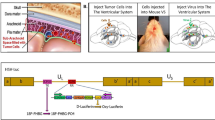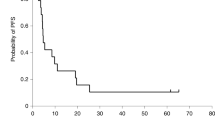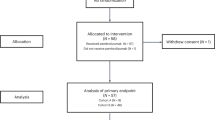Abstract
Meningeal metastasis is a fatal complication of breast cancer that affects 5–8% of patients. When cancer cells seed in the meninges, their subsequent growth results in severe neurological complications involving the cranial nerves, cerebrum and spinal cord, limiting life expectancy to less than 4 months. The incidences of meningeal metastases increase with prolonged lifespan resulting from treatment advances for primary breast cancer and their metastases. Currently, there is no cure. Aggressive multimodal therapies such as radiation and chemotherapy (intra-cerebrospinal fluid (CSF) and systemic) are ineffective. Therapeutic agents are often quickly cleared from the CSF, while higher doses that can achieve a therapeutic response are highly toxic. The secure guarding of the subarachnoid space by the blood–brain barrier on one side and the blood–CSF barrier on the other prevents chemotherapy from reaching cancer cells in the meninges. These challenges with treating meningeal metastases highlight the urgent need for a new therapeutic modality. An ideal treatment would be an agent that avoids rapid clearance, remains within the CSF, reaches the meninges and selectively destroys tumor cells. Replication conditional oncolytic herpes simplex virus type 1 (HSV-1) may be effective in this regard. Viral oncolysis, the destruction of cancer cells by replicating virus, is under clinical investigation for cancers that are unresponsive to current therapies. It is based on the model of multiple cycles of lytic virus replication in cancer cells that amplify the injected dose. The therapeutic potential of oncolytic HSV-1 for breast cancer meningeal metastases is discussed here. HSV-1 could be a potential novel treatment for meningeal metastases that can be translated to the clinic.
This is a preview of subscription content, access via your institution
Access options
Subscribe to this journal
Receive 12 print issues and online access
$259.00 per year
only $21.58 per issue
Buy this article
- Purchase on Springer Link
- Instant access to full article PDF
Prices may be subject to local taxes which are calculated during checkout

Similar content being viewed by others
References
Chamberlain MC . Leptomeningeal metastasis. Curr Opin Oncol 2010; 22: 627–635.
Niwińska A, Rudnicka H, Murawska M . Breast cancer leptomeningeal metastasis: propensity of breast cancer subtypes for leptomeninges and the analysis of factors influencing survival. Med Oncol 2013; 30: 408.
Waki F, Ando M, Takashima A, Yonemori K, Nokihara H, Miyake M et al. Prognostic factors and clinical outcomes in patients with leptomeningeal metastasis from solid tumors. J Neurooncol 2009; 93: 205–212.
Oliveira M, Braga S, Passos-Coelho JL, Fonseca R, Oliveira J . Complete response in HER2+ leptomeningeal carcinomatosis from breast cancer with intrathecal trastuzumab. Breast Cancer Res Treat 2011; 127: 841–844.
Harstad L, Hess KR, Groves MD . Prognostic factors and outcomes in patients with leptomeningeal melanomatosis. J Neurooncol 2008; 10: 1010–1018.
Kuruppu D, Dorfman JD, Tanabe KK . HSV-1 viral oncolysis and molecular imaging with PET. Curr Cancer Drug Targets 2007; 7: 175–180.
Kuruppu D, Brownell AL, Shah K, Mahmood U, Tanabe KK . Molecular imaging with bioluminescence and PET reveals viral oncolysis kinetics and tumor viability. Cancer Res 2014; 74: 4111–4121.
Kuruppu D, Tanabe KK . Viral oncolysis by herpes simplex virus and other viruses. Cancer Biol Ther 2005; 4: 524–531.
Sahin TT, Kasuya H, Nomura N, Shikano T, Yamamura K, Gewen T et al. Impact of novel oncolytic virus HF10 on cellular components of the tumor microenviroment in patients with recurrent breast cancer. Cancer Gene Ther 2012; 19: 229–237.
Gholami S, Chen CH, Gao S, Lou E, Fujisawa S, Carson J et al. Role of MAPK in oncolytic herpes viral therapy in triple-negative breast cancer. Cancer Gene Ther 2014; 21: 283–289.
Author information
Authors and Affiliations
Corresponding author
Ethics declarations
Competing interests
The authors declare no conflict of interest.
Rights and permissions
About this article
Cite this article
Kuruppu, D., Tanabe, K. HSV-1 as a novel therapy for breast cancer meningeal metastases. Cancer Gene Ther 22, 506–508 (2015). https://doi.org/10.1038/cgt.2015.43
Received:
Revised:
Accepted:
Published:
Issue Date:
DOI: https://doi.org/10.1038/cgt.2015.43
This article is cited by
-
Oncolytic viruses on the cusp of success?: proceedings of the 9th International Conference on Oncolytic Virus Therapeutics
Molecular Therapy - Oncolytics (2016)



